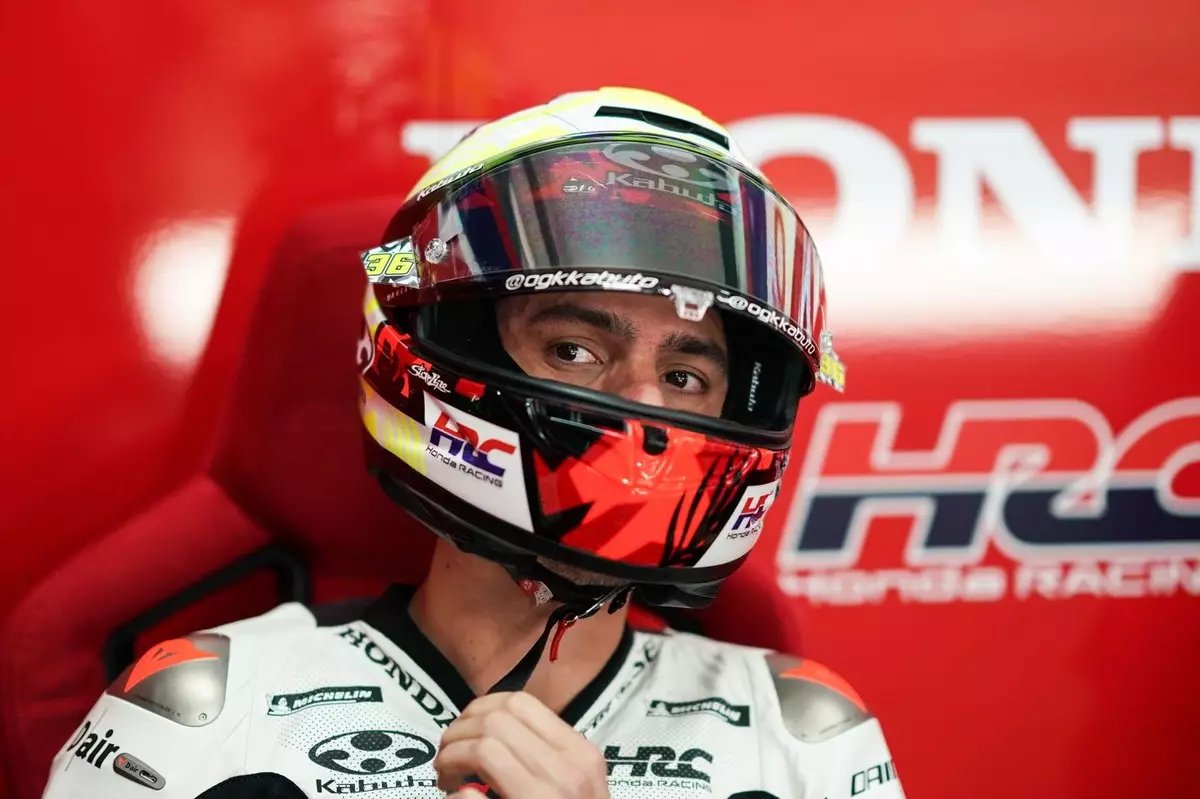Joan Mir’s foray into the world of MotoGP has been a compelling narrative laced with contrasts, from the dazzling success he achieved with Suzuki to the arduous journey he has faced since joining the Repsol Honda team. His early tenure in the premier class, marked by a championship title in just his second season, has created a high bar that the talented Spaniard now finds difficult to reach. Upon joining Honda in 2023, Mir perceived a stark turn in trajectory; he had been accustomed to triumph and competitive machinery, only to confront an unyielding reality with the RC213V.
Mir’s predicament is a vivid illustration of how quickly fortunes can change in MotoGP, a sport where performance and technology are inextricably linked. It was a daunting transition where he found himself grounded in the last position of the championship standings, a harsh reminder of the uphill battle he now faces. The contrast between his past accolades with Suzuki and his current struggles with Honda highlights not only the variances in bike performance but also the psychological toll it can take on a rider coming from a background of success.
With the departure of star rider Marc Marquez, a significant vacuum was left in Honda’s performance strategy. Team principal Alberto Puig had hoped Mir would seamlessly fill this void with his insights and experience. However, navigating the challenges posed by the bike’s competitiveness has proven difficult. Mir himself reflected on moments of little motivation, grappling with the pressures of expectations and the realities of racing near the back of the pack. It is essential to understand that, in an environment driven by results, falling short can deeply impact a rider’s morale.
Mir candidly acknowledged that he has been “spoiled” by early success, creating a mental landscape where setbacks feel particularly damaging. His admission emphasizes the psychological nuances within MotoGP, where triumph can breed expectations that become burdensome in the face of adversity. As he continued on this rocky path, it became evident that his mental resilience would be as crucial as physical performance.
As the new season approached, Mir expressed relief during pre-season testing, suggesting that Honda had finally shifted in a direction that resonated with his preferences as a rider. Achieving the eighth-fastest time in Buriram and performing better than the new teammates from Honda’s satellite teams marked a turning point for him. This improvement could signify a much-needed resurgence in his campaign as he evolves his racing strategy with a bike more suited to his style.
What is intriguing about Mir’s situation is the psychological reset he seems to be experiencing. The ability to find joy in riding again, as he spoke of in recent testing, is not merely a personal triumph, but also a potentially game-changing transformation for his overall performance. The ability to enter corners sideways and feel that semblance of comfort indicates a pivotal moment where a rider reconnects with their instincts—a crucial aspect of competing at the highest levels in MotoGP.
Looking ahead, the narrative surrounding Joan Mir’s tenure at Honda is rich with the themes of resilience, adaptation, and the relentless pursuit of competitive spirit. His story serves as a reminder that success is often a double-edged sword; the expectations that accompany achievements can be suffocating, especially when faced with a significant shift in circumstances. However, with renewed motivation and a glimmer of progress in pre-season testing, Mir stands at a critical juncture in his career.
As he navigates the challenges ahead, the question remains whether he can translate the potential seen in testing into consistent results on the track. The upcoming season will be paramount not just for Mir as a rider, but also for Honda, as both seek to reclaim their positions among the elite in MotoGP. In this high-stakes environment, every race is an opportunity for redemption, and for Joan Mir, this season could well define his legacy within the sport.


Leave a Reply